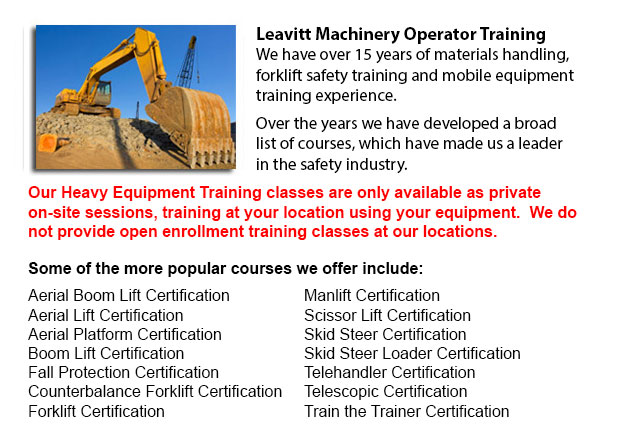
Heavy Equipment Ticket Richmond Hill - A heavy equipment operator will utilize various construction machinery, depending upon the nature of the job at hand. The huge machinery are constructed to carry out particular tasks in the most effective method for each industry. Different kinds of machines are small enough to be used inside of warehouses or in plants, and could be particularly designed to move boxes and pallets. Bigger machinery is customarily utilized outdoors to clear areas and grade land in preparation for construction.
There are various projects which need the expertise of a heavy equipment operator, including public works projects and endeavors of privately owned companies. Tasked completed by public works offices could consist of road construction and the building of bridges. There are many other publicly funded projects that comprise dam construction, airport runways, power plants, municipal structures and levees. Private ventures could comprise the construction of office buildings, malls, retail stores and industrial parks.
Small scale tasks would normally require heavy equipment to be utilized within huge industrial spaces or in commercial buildings. The machinery that would be utilized in this particular instance, comprises pallet jacks, forklifts and cherry pickers. Backhoes and trenchers are often available in various sizes appropriate for tasks requiring powerful and less bulky machinery.
Usually, a heavy equipment operator is required to be certified by local or regional agencies. Some are cross-trained and certified to operate a variety of different machine types. Other operators prefer to specialize in operating only one kind of machinery and only require periodic updates on their operating permit certifications.
Workers in this business are normally trained through a formal apprenticeship program offered by unions or companies or else with on-the-job training. Some technical and trade schools provide paid training courses. It is necessary that employers hire fully-trained heavy equipment operators in order to adhere to local rules and comply with regional and local laws regarding employee safety and job conditions.
-
Scissor Lift Certification Richmond Hill
Scissor Lift Certification Richmond Hill - Scissor lift platforms are utilized at work sites in order to allow tradespeople - like for example welders, masons and iron workers - to reach their work. Operating a scissor lift platform is usually second... More -
Narrow Aisle Forklift / Order Picker Training / Electric Pallet Jack / Electric Pallet Truck Training in Richmond Hill
A pallet jack is a model of equipment specialized in the transporting of pallets of many dimensions and weights. They might be utilized as an appendage for lift trucks, cranes and other types of heavy machinery or be used on their own. Pallet jacks a... More -
Heavy Equipment Operator Certification Richmond Hill
Heavy Equipment Operator Certification Richmond Hill - The heavy equipment operator is a person who manipulates the controls and drives various kinds of big machinery. Heavy machinery is most frequently used on construction sites in order to deliver... More -
Loader Training Richmond Hill
Loader Training Richmond Hill - Why You Must Finish A Loader Training Course - Individuals wanting work in businesses that use lift trucks must undergo a Loader Training program prior to becoming a certified operator of a lift truck. There are lots o... More -
Manlift Training Richmond Hill
Manlift Training Richmond Hill - Various manlift training programs consist of the review and content of manlift devices. An important part of the course is the practicum where students show their knowledge and practical ability to safely operate a ma... More -
Fall Protection Training in Richmond Hill
There are many injuries at work associated to falling and a lot of fall-related deaths reported every year. Most of these instances could have been prevented with better training, better measures in place, and by correctly equipping personnel before... More -
Wheel Loader Training Richmond Hill
Wheel Loader Training Richmond Hill - Commonly, the various kinds of heavy equipment training are classed into 2 categories of machinery: those which have rubber tires and tracked vehicles. Tracked vehicles consist of items like cranes, bulldozers an... More -
Forklift Certification Schools Richmond Hill
Forklift Certification Schools Richmond Hill - Forklift Certification is mandatory in North America. Hence, forklift training programs are important both for companies and for people seeking jobs in industries as forklift operators. Forklift training... More

Forklift Training Richmond Hill
TOLL FREE: 1-888-254-6157
Richmond Hill, Ontario
forklifttrainingrichmondhill.com
Email Us
About Us


